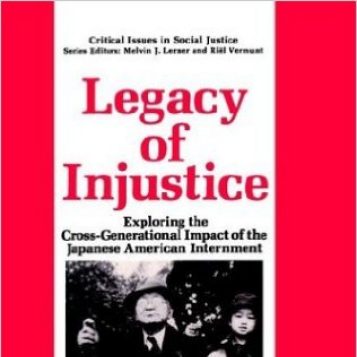Professor of Psychology
About
My research interests focus primarily on Asian American mental health. Specific topics include: Japanese Americans and the psychosocial consequences of the World War II incarceration and historical trauma; Asian American family processes; intergenerational relations; emotions and distress.
Representative Publications:
Nagata, D.K., Kim, J.H.J., & Nguyen, T. (2015). Processing cultural trauma: Intergenerational effects of the Japanese American incarceration. Journal of Social Issues, 71(2), 356-370.
Nagata, D.K., Tsai, A.H., & Nguyen, T.U. (2015). Depression among Asian and Pacific Islander American elders. In H. Grey & B. N. Hall-Clark (Eds.) Cultural considerations in Asian and Pacific Islander mental health (pp.29-54). New York: Oxford University Press.
Wendt, D.C., Gone, J.P., & Nagata, D.K. (2015). Potentially harmful therapy and multicultural counseling: Bridging two disciplinary discourses. The Counseling Psychologist (Major Contribution), 43(3), 334-358.
Kim, J.H.J., Nagata, D.K., & Akiyama, M. (2014). Japanese American reactions to World War II incarceration redress: Just world beliefs, locus of control, and coping. Cultural Diversity and Ethnic Minority Psychology, 21(3), 345-357.
Nagata, D.K., Kohn-Wood, L., & Suzuki, L. (Eds.) (2012). Qualitative strategies for ethnocultural research. Washington, DC: American Psychological Association.
Nagata, D.K., Cheng, W.J.Y., & Nguyen, T.U. (2012). Recollections of historical Injustice: A qualitative investigation of emotions in Japanese American incarceration memories. In D.K. Nagata, L. Kohn-Wood, & L.A. Suzuki, (Eds.) Qualitative strategies for ethnocultural research (pp. 103-118). Washington, DC: American Psychological Association.
Nagata, D.K., Cheng, W.J.Y., & Tsai, A.H. (2010). Chinese American grandmothering: A qualitative exploration. Asian American Journal of Psychology, 2 (2), 151-161.
Tsai-Chae,A.H., & Nagata, D.K. (2008). Asian values and perceptions of intergenerational family conflict among Asian Americans. Cultural Diversity and Ethnic Minority Psychology, 14 (3), 205-214.
Area



